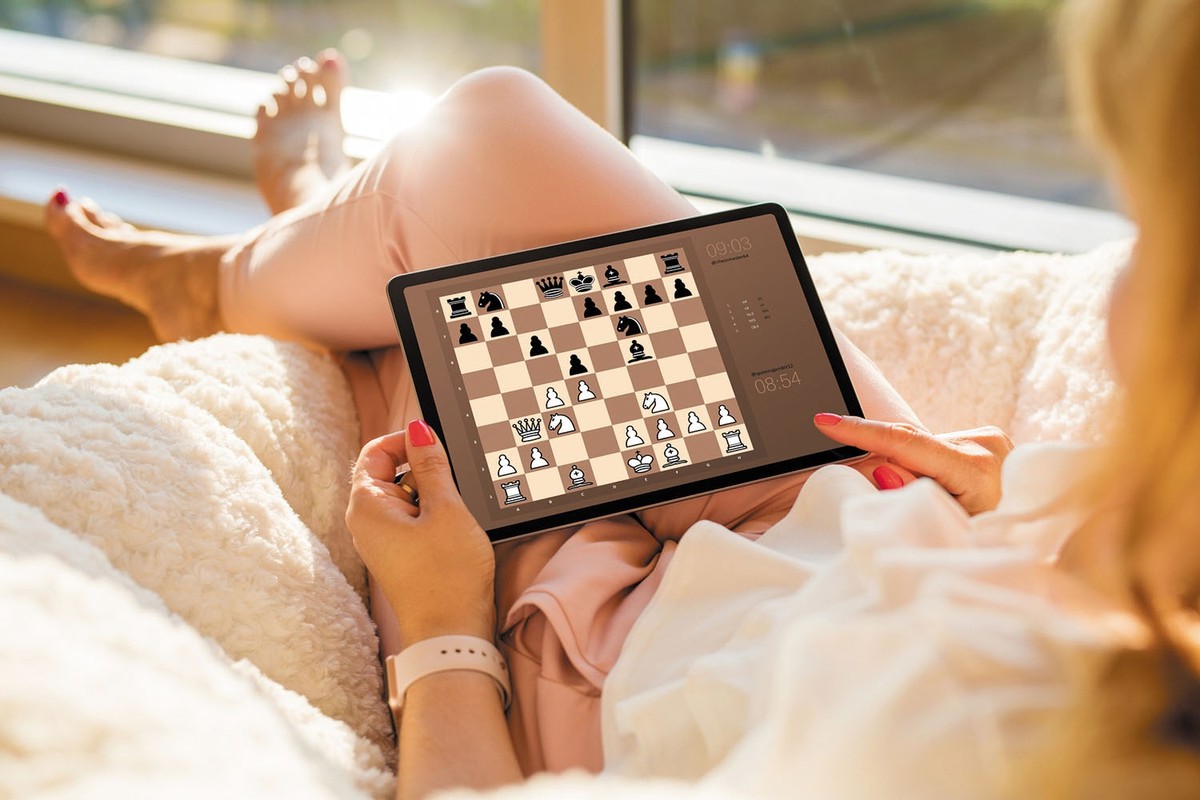20/10/2025
20/10/2025

NEW YORK Oct 20: Brain-training exercises may do more than just sharpen your puzzle-solving skills — they might actually improve focus and attention by affecting key chemicals in the brain, according to a new clinical trial.
While the effectiveness of brain-training games in preventing cognitive decline has long been debated, recent research offers fresh insight into how specific types of games can influence brain function. The study, published Tuesday in the peer-reviewed journal JMIR Serious Games, found that brain-training programs aimed at improving attention and processing speed could help preserve acetylcholine — a neurotransmitter essential for focus and memory.
“Acetylcholine functions like a switch to make the brain more awake, more focused and attentive,” said senior study author Dr. Etienne de Villers-Sidani, associate professor in the Department of Neurology and Neurosurgery at McGill University in Montreal. “This is the first human study to document an upregulation of acetylcholine, which is absolutely crucial for sustaining brain plasticity in aging.”
Upregulation refers to a biological process where cells increase the number of receptors for a neurotransmitter, making them more responsive. The study showed that participants who engaged in high-speed cognitive training saw a 2.3% increase in acetylcholine upregulation — a finding that could have implications for delaying age-related cognitive decline.
Dr. Michael Merzenich, professor emeritus at the University of California, San Francisco and co-founder of BrainHQ — the company behind the training games used in the study — emphasized the significance of the discovery. “We’re talking about a fundamental physical chemical change that we know really matters as a contributor to brain health,” said Merzenich, who received the prestigious Kavli Award in Neuroscience in 2016 for his work on neuroplasticity.
The 10-week study involved 92 relatively healthy older adults from Quebec, divided into two groups. One group played BrainHQ’s attention-boosting games “Double Decision” and “Freeze Frame,” while the control group played more passive games like Solitaire and Bricks Breaking Hex. Participants trained for 30 minutes daily.
"Freeze Frame" challenged players to identify incorrect images in a rapid sequence, while "Double Decision" tasked them with spotting a specific car and sign location in a fast-paced scene. These games adapt to the user’s skill level, becoming more difficult over time — a key aspect believed to stimulate brain plasticity.
PET scans before and after the intervention showed that those in the BrainHQ group had improved acetylcholine activity in areas of the brain responsible for memory and decision-making, according to Dr. Raj Attariwala, a functional imaging specialist at AIM Medical Imaging in Vancouver, who was not involved in the study.
The improvement nearly offset the average 2.5% decline in acetylcholine that naturally occurs every decade with aging. In contrast, the control group showed no significant change.
Dr. Richard Isaacson, director of research at the Institute for Neurodegenerative Diseases in Boca Raton, Florida, sees brain-training games as part of a broader cognitive health strategy. “There is no one magic pill to prevent dementia, but a combination of interventions can help people take control in the fight against Alzheimer’s,” he said. “Because of the science, I’ve suggested these exact BrainHQ tests as a component of a cognitive engagement plan, along with learning a new language, playing an instrument, or taking up a new hobby like dancing or photography.”
However, some experts urge caution in interpreting the results. “The work is early stage and effect sizes are small,” said Dr. Aaron Seitz, a researcher in brain games and professor at Northeastern University’s Bouvé College of Health Sciences. He emphasized the importance of replicating the findings before drawing firm conclusions.
CNN Chief Medical Correspondent Dr. Sanjay Gupta recently echoed this sentiment, noting that while popular games like Wordle and crossword puzzles are enjoyable, they don’t appear to improve overall cognition. “What crossword puzzles and word games are probably really good at is making you better at crossword puzzles and word games,” Gupta said on CNN. “People often use brain-training exercises with the hopes of reducing their risk of dementia. Truth is, there’s not a lot of data on this to suggest it actually reduces your risk for dementia.”
Nonetheless, the new study provides compelling evidence that targeted brain-training exercises may have broader impacts on brain chemistry and function, opening new avenues in the ongoing effort to slow cognitive decline.
As Merzenich noted, “This is an important study because the training had a brain-wide impact — it’s not limited to the very narrow set of processes that people were trained on.”


